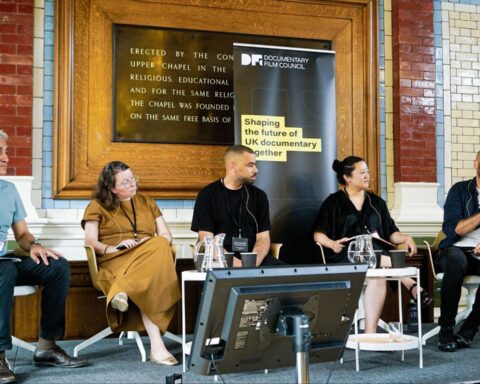The only thing that really matters in [Canadian] broadcasting is program content; all the rest is housekeeping.—Fowler Commission (Report of the Committee on Broadcasting, 1965)
Ever since Bell Media announced its $3.38-billion purchase (subject to regulatory approval) of Astral Media, I’ve been worried. As every Canadian knows, Bell has a long history as a monopoly and is used to wagging the dog of the day (be it government or our regulator, the CRTC) to get whatever it wants. We’re already labouring under a consolidated media ecology. Not including a kneecapped CBC/SRC or Quebecor, we have had until now five major players—Bell, Shaw, Rogers, Videotron and Astral—who own and operate the lion’s share of our coast-to-coast integrated media systems. If you’re a filmmaker or producer, the nitty-gritty consequences are that there’s only a handful of decision-makers in charge of commissioning what is supposed to be a broad range of programmes from reality, doc/factual to comedy, drama, and kids’ shows.
Taking a wider view, it’s hardly a coincidence that programming took a nose-dive in diversity and innovation about four years ago when media consolidation took off. As some key bloggers and critics have observed, it’s a textbook case of how such concentration has created a risk-averse culture in broadcast boardrooms. The Globe and Mail’s Kate Taylor for one incisively if grimly summed up this depressing trend. “The golden age of television shimmers brightly,” she wrote, “just not in Canada.”
Should the sale go through, we’ll be down to four players and the situation will worsen.
Here’s why the CRTC and the Competition Bureau should go over this deal with fine-toothed combs.
THE NUMBERS. Depending upon who you believe, Bell will either have less than 35% of audience share (as it claims) or well over 40% across radio and TV as some others claim. Well, which is it? The latter would raise alarm bells as it’s the threshold number that threatens the principle of diversity of voice and one that would force the CRTC to really grapple with the situation. Count on Bell to fight hard against audience share and valuation of the deal.
The Record. Bell Media’s own recent commissions have been, to put it charitably, problematic. It will have to account for its promise of performance record since it was granted the CTV group licence in 2010. So far, we know it has pulled nearly the entire slate of documentary programming out of Bravo!; it has failed to commission new comedy series for the Comedy Network (a few pilots only, and one strip game show based on a 1962 format); and its main CTV network slate has relied predominantly on its U.S. shows to draw viewers in (Flashpoint was commissioned by the previous regime).
WINDOWS THREATENED. The huge fear amongst the more adventurous creators and writers is that Bell’s pattern of throttling programming will destroy the success of Astral interests like TMN (The Movie Network) and HBO Canada. Indeed, in its submission to the CRTC, Bell Media made no commitment to program any Canadian shows on these two networks, certainly none that respects the distinct market Astral created.
PROMISES, PROMISES. According to the rules, 10% of the purchase price is supposed to be a tangible benefit paid into an aspect of the media industry. Bell has tabled a request that some $40-million in benefits be directed towards itself to build out infrastructure in the North. Hopefully all interveners will demand the Commission not buy this heinous form of avarice. Adding further insult is Bell’s proposed schedule of “benefits” for new programming. It doesn’t want to spend a dime before year six, and then extend it into year 10. Did someone forgot to inform Bell that licences are seven-year terms? It’s a request that betrays a contempt both for the process and for content creators, and is as crazy-making as it is demoralizing.
Put it all together. Monopolistic telephone conglomerate potentially in charge of 79 channels, 107 radio stations—and more than 100 websites. Is this a good thing? We’ve arrived at this media concentration mess because the CRTC consistently favoured industrial goals over cultural ones. Both have to be addressed according to the Broadcasting Act, as Fowler et al., well understood. Let’s hope the nation’s creators and their associations will fight hard to reclaim the balance.











